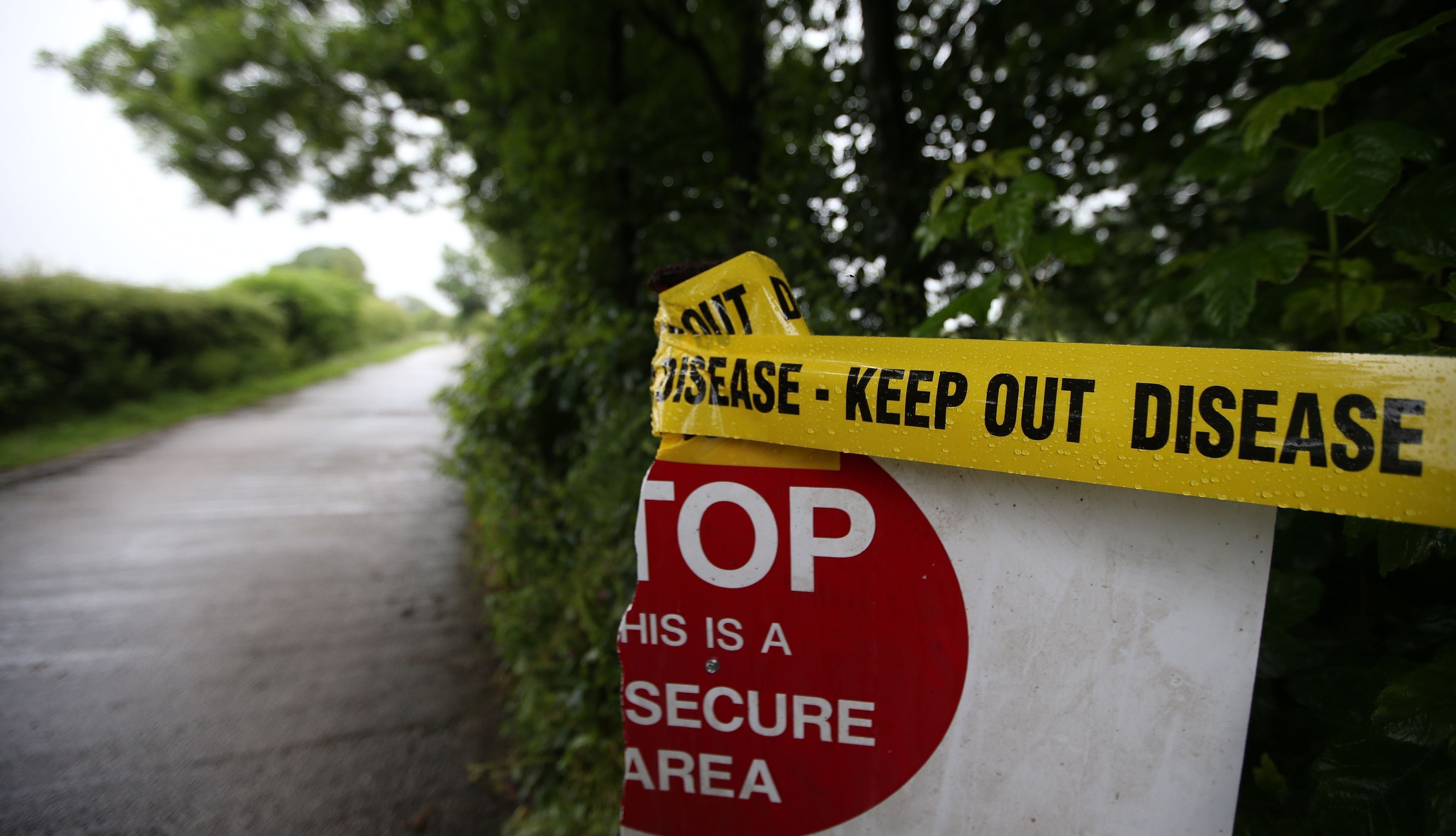Avian flu forces culls of two flocks in Northern Ireland
Exclusion zones have been put in place around the sites in Aughnacloy, Co Tyrone, and Broughshane, Co Antrim.

Your support helps us to tell the story
From reproductive rights to climate change to Big Tech, The Independent is on the ground when the story is developing. Whether it's investigating the financials of Elon Musk's pro-Trump PAC or producing our latest documentary, 'The A Word', which shines a light on the American women fighting for reproductive rights, we know how important it is to parse out the facts from the messaging.
At such a critical moment in US history, we need reporters on the ground. Your donation allows us to keep sending journalists to speak to both sides of the story.
The Independent is trusted by Americans across the entire political spectrum. And unlike many other quality news outlets, we choose not to lock Americans out of our reporting and analysis with paywalls. We believe quality journalism should be available to everyone, paid for by those who can afford it.
Your support makes all the difference.Avian flu has forced culls of two flocks of kept birds in Northern Ireland an official has said.
Some 22,100 ducks were culled at one of the affected sites, a commercial premises in Aughnacloy, Co Tyrone, while culling and an exclusion zone is also being applied to the second site in Broughshane Co Antrim, described as a “small backyard flock”.
The flock owners are to receive compensation for the lost livestock. A valuation at the Aughnacloy site has been described as ongoing.
An avian influenza prevention zone was put in place across Northern Ireland on November 17 and a mandatory housing order came into effect on November 29.
This is now the largest ever outbreak of avian influenza on these islands
Jim Blee, from the Department of Agriculture, described the cull in Aughnacloy as having been completed on Wednesday night, and paid tribute to staff who carried out the “very difficult work” across four to five days, and through Storm Barra.
Appearing before the Stormont agriculture committee on Thursday morning, Mr Blee, deputy director of the animal health and welfare division, said Great Britain is on day 44 of the outbreak, and there have been 38 cases confirmed in Britain since the first confirmed case in England on October 26.
He said as of Thursday morning there were 33 confirmed cases in England, two in Scotland and three in Wales, and more than 300 confirmed cases in wild birds across Britain. There have also been four confirmed cases in the Republic of Ireland three in Co Monaghan and one in Co Cavan, and 57 cases in wild birds across nine counties.
“This is now the largest ever outbreak of avian influenza on these islands,” he told MLAs.
In Northern Ireland he said there are two confirmed cases in kept flocks as of Thursday, and nine cases in wild birds, including at the Waterworks park in north Belfast, west Belfast Lough, Hillsborough and the Loughshore in Portadown, Co Armagh.
“We have been working closely with colleagues across Great Britain and the Republic of Ireland as this outbreak develops, this has included daily stock take calls across the UK and close collaboration with colleagues in the devolved administrations on their approach to this outbreak,” he said.
“We have had frequent engagement with our colleagues in the Republic of Ireland, particularly where disease control zones from an infected premise in our respective jurisdictions have extended into the other.”
Julian Henderson, senior principal veterinary officer, said resources are a “real issue right across the British Isles”.
“We are prioritising staff into the work on bird flu, right across the department we are considering our resourcing needs to enable us to sustain this response throughout the winter and we’re putting plans in place to how we can maintain the response,” he told MLAs.
“At the minute staff are working long hours, they have been working overtime in difficult conditions and we are actively considering how we can sustain that response.”
The official said avian flu is likely to be with us across the winter and urged people to be “extremely vigilant and not stop being vigilant until it warms up in the spring time”.